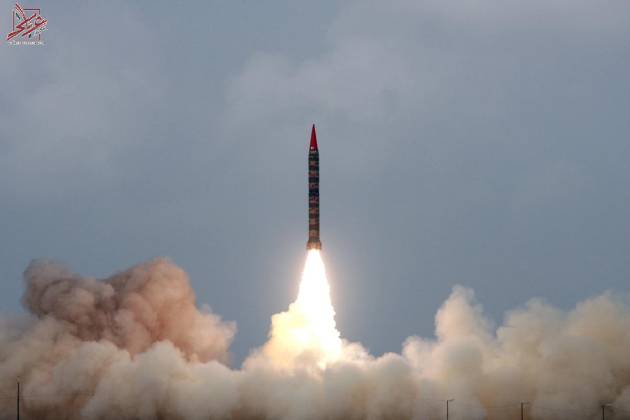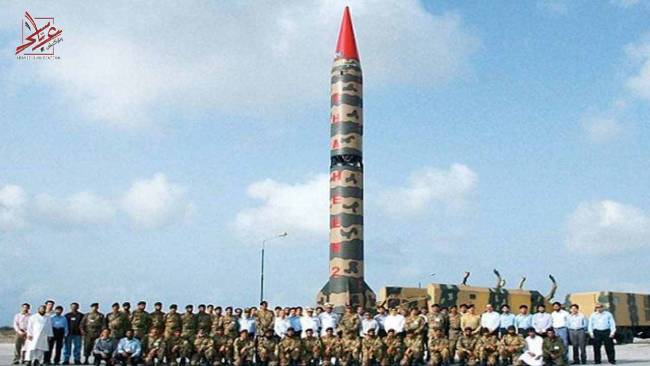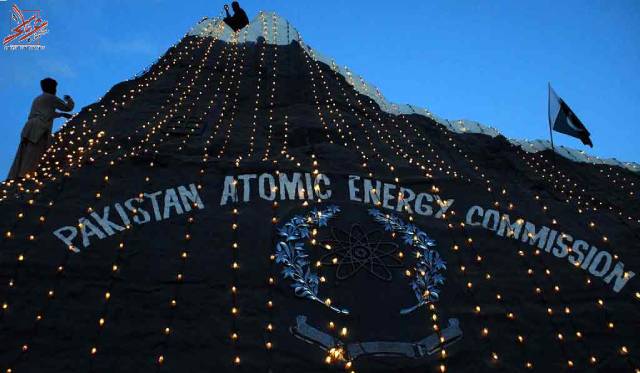
Youm-e-Takbeer: Commemorating a Milestone in Pakistan’s Nuclear History
Introduction:
Youm-e-Takbeer, celebrated annually on May 28th, holds immense significance for Pakistan as it marks a historic moment in the country’s nuclear history. The day commemorates the successful detonation of Pakistan’s nuclear weapons in 1998, making it the seventh nuclear power in the world. This article delves into the background, significance, and celebrations of Youm-e-Takbeer, highlighting its importance in shaping Pakistan’s national identity.
1. Understanding the Background

- The Nuclear Ambitions of Pakistan: Pakistan’s interest in nuclear technology dates back to the 1950s when the country recognized the potential of nuclear energy for peaceful purposes. With escalating security concerns and regional dynamics, the focus shifted towards developing a nuclear deterrent capability.
- The Challenges and Security Concerns: Pakistan faced numerous challenges and security concerns that led to the pursuit of a nuclear weapons program. These included regional rivalries, particularly with India, and the desire to ensure national sovereignty and security in the face of external threats.
- The Decision to Conduct Nuclear Tests: In response to India’s nuclear tests in May 1998, Pakistan took the strategic decision to conduct its own nuclear tests. On May 28th, 1998, Pakistan successfully detonated five nuclear devices in the Chagai district of Balochistan, making a powerful statement about its nuclear capabilities.
2. Significance of Youm-e-Takbeer

- Asserting Sovereignty and Deterrence: The successful nuclear tests on Youm-e-Takbeer demonstrated Pakistan’s capability to assert its sovereignty and establish a credible deterrence against potential adversaries. It sent a clear message that Pakistan would not compromise on its security and would take all necessary measures to protect its interests.
- Strengthening National Identity: Youm-e-Takbeer holds great significance in shaping Pakistan’s national identity. It became a moment of pride and unity for the nation, highlighting Pakistan’s scientific and technological achievements. The successful nuclear tests on this day instilled a sense of national pride and solidarity among the Pakistani people, fostering a shared belief in the country’s capabilities.
- Garnering International Attention: The nuclear tests conducted on Youm-e-Takbeer captured global attention and had far-reaching implications. The successful detonation of nuclear weapons positioned Pakistan as a significant player on the international stage. It drew attention to regional security dynamics, nuclear proliferation concerns, and the delicate balance of power in South Asia.
3. Celebrations and Observations

- National Events and Ceremonies: Youm-e-Takbeer is commemorated across Pakistan with various national events and ceremonies. The day starts with flag hoisting ceremonies at government buildings, followed by special prayers for the progress and security of the nation. Public figures, politicians, and military officials deliver speeches highlighting the significance of the day.
- Public Gatherings and Rallies: Public gatherings and rallies are organized, where people from all walks of life come together to express their solidarity and pride. These gatherings serve as a platform for speeches, cultural performances, and patriotic songs that commemorate the achievements of Youm-e-Takbeer.
- Media Coverage and Discussions: Media plays a crucial role in spreading awareness and generating discussions about Youm-e-Takbeer. Television channels, radio stations, and newspapers dedicate special segments and articles to highlight the historical significance of the day. Talk shows and panel discussions invite experts to share their insights on the impact of the nuclear tests and their implications for Pakistan’s security and regional stability.
- Educational Programs and Awareness Campaigns: Educational institutions play a vital role in educating students about the importance of Youm-e-Takbeer. Special programs and lectures are organized to create awareness about nuclear technology, its peaceful uses, and the responsible handling of such powerful capabilities. Awareness campaigns promote a sense of responsibility and emphasize the significance of nuclear security.
4. Reflections on the Achievements
- Advancements in Science and Technology: The successful nuclear tests on Youm-e-Takbeer showcased Pakistan’s scientific and technological advancements. It demonstrated the country’s capabilities in fields such as nuclear physics, metallurgy, and engineering. The achievements of this day continue to inspire and motivate young scientists and researchers to excel in these areas.
- Nuclear Energy for Peaceful Purposes: While the focus of Youm-e-Takbeer is on the nuclear tests, it is essential to recognize that Pakistan’s nuclear program also encompasses the peaceful use of nuclear energy. The country has made significant strides in the development of nuclear power plants, contributing to its energy needs and reducing its dependence on fossil fuels.
- Nuclear Deterrence and Regional Stability: Youm-e-Takbeer solidified Pakistan’s position as a nuclear-armed state, contributing to the maintenance of regional stability and deterrence. It emphasized the importance of responsible nuclear behavior and Pakistan’s commitment to maintaining a credible deterrence posture. The successful tests on this day have played a significant role in maintaining the balance of power in South Asia.
5. International Perspectives
- Responses from Neighboring Countries: The nuclear tests conducted on Youm-e-Takbeer had a profound impact on neighboring countries and the international community. India, as Pakistan’s primary regional rival, responded with its own nuclear tests shortly after Pakistan’s tests. Escalating tensions between the two countries. The tests sparked concerns about an arms race in South Asia. Rompting global efforts to encourage both countries to engage in dialogue and confidence-building measures.
- Impact on Global Nuclear Non-Proliferation Efforts: The nuclear tests on Youm-e-Takbeer raised concerns regarding global nuclear non-proliferation efforts. Pakistan’s emergence as a nuclear power challenged the established non-proliferation norms. And prompted discussions on the effectiveness of existing treaties and mechanisms. The international community called for strengthening non-proliferation regimes and engaging Pakistan and India in meaningful dialogue to ensure regional stability.
- Balancing Diplomatic Relations and Security Concerns: The nuclear tests conducted on Youm-e-Takbeer posed a delicate challenge for Pakistan in balancing. Its diplomatic relations with other countries while addressing its security concerns. Pakistan had to navigate the complex dynamics of international relations managing. Its relationships with major powers, safeguarding its national interests and security.
6. Challenges and Future Directions
- Safeguarding Nuclear Assets: Ensuring the safety and security of its nuclear assets remains a critical challenge for Pakistan. The country has implemented robust measures, including stringent control systems, comprehensive export controls. And international cooperation in the realm of nuclear security. Pakistan continues to enhance its nuclear security infrastructure to prevent any unauthorized access or proliferation risks.
- Arms Control and Non-Proliferation Commitments: Pakistan is committed to its non-proliferation obligations and actively participates in global efforts to strengthen nuclear disarmament and arms control. It advocates for a comprehensive approach to disarmament that addresses the security concerns of all states. Pakistan continues to engage with international forums and initiatives to promote nuclear restraint, non-proliferation, and disarmament.
- Harnessing Nuclear Technology for Socio-Economic Development: Pakistan recognizes the importance of utilizing nuclear technology for socio-economic development. It has invested in various peaceful applications of nuclear technology, including agriculture, medicine, and industry. Pakistan’s nuclear power plants contribute significantly to the country’s energy needs. Reducing the reliance on fossil fuels and promoting sustainable development.
Conclusion
Youm-e-Takbeer, observed every year on May 28th, holds immense significance in Pakistan’s history and national consciousness. The day commemorates the successful detonation of Pakistan’s nuclear weapons, marking a pivotal moment in the country’s defense capabilities. It symbolizes Pakistan’s determination to ensure its sovereignty and national security, upholding its commitments to peace.
As Pakistan continues to progress, it faces various challenges in safeguarding its nuclear assets, adhering to international non-proliferation commitments, and harnessing nuclear technology for socio-economic development. Striking a balance between national security and diplomacy remains crucial.
Youm-e-Takbeer serves as a reminder of Pakistan’s scientific achievements and its commitment to maintaining a peaceful and stable region. It is an occasion to reflect upon the past, evaluate the present, and envision a future. Where nuclear energy can be harnessed for the betterment of society. Pakistan’s responsible nuclear behavior and its efforts to promote regional stability contribute to global peace and security.
Youm-e-Takbeer celebrates Pakistan’s nuclear achievement and underscores the importance of responsible nuclear behavior, diplomacy, and international cooperation. It is a day to remember the nation’s resilience, scientific prowess, and commitment to safeguarding. Its interests, contributing to global peace.


Comments (0)